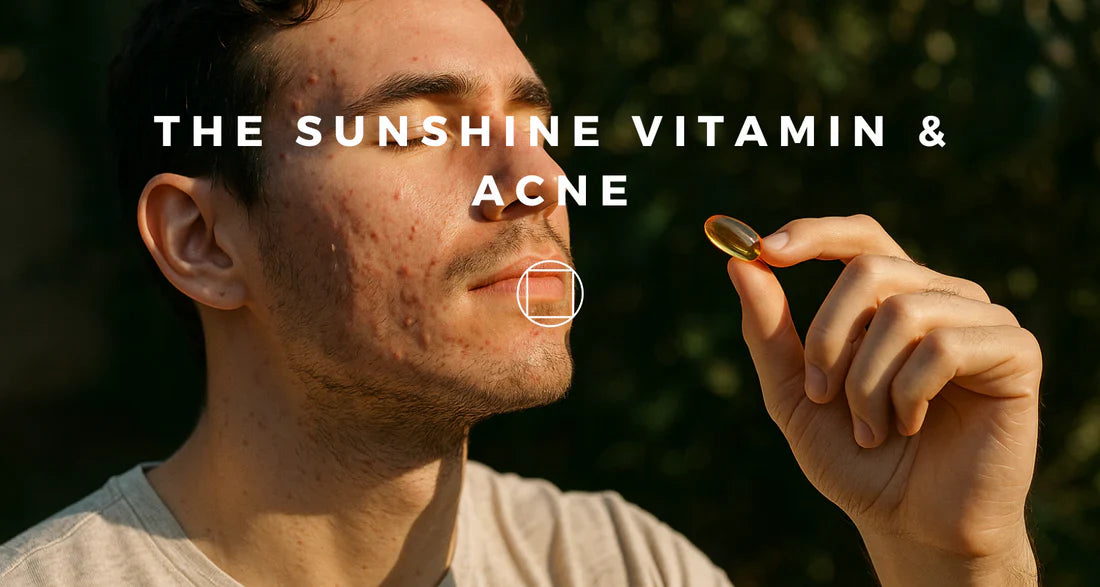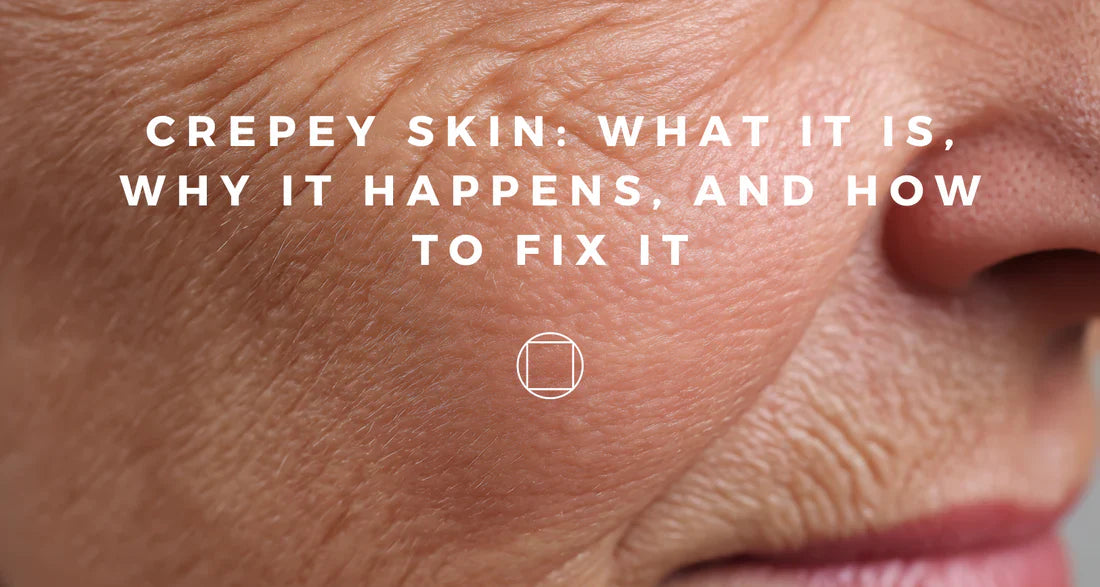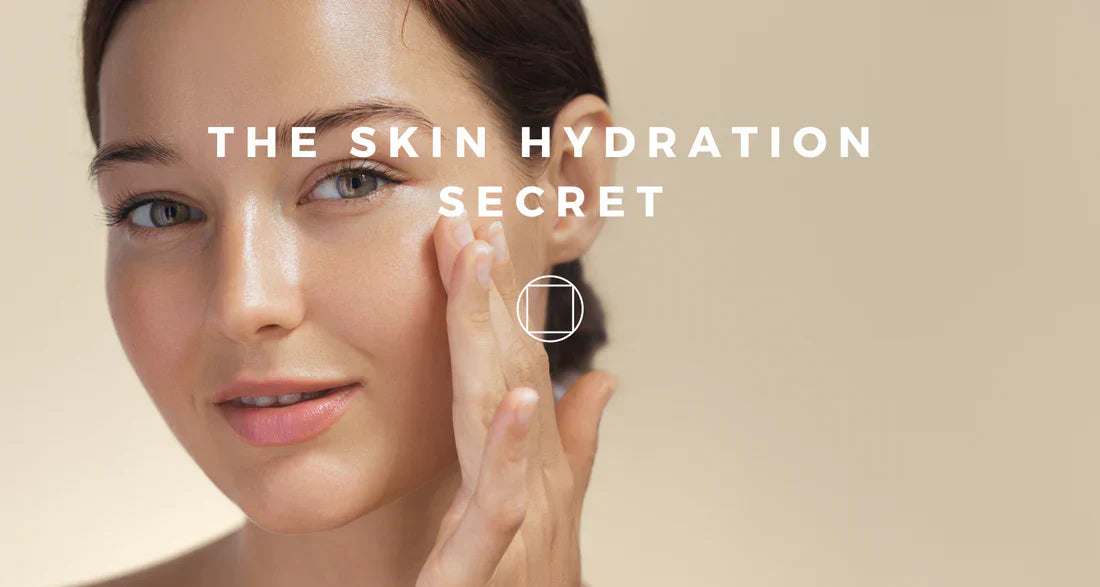
The Sunshine Vitamin & Acne
The Sunshine Vitamin & Acne
By Benjamin Knight Fuchs, R.Ph.
Understanding the Impact of Acne
Acne, a persistent and often frustrating skin condition, affects a vast majority of people worldwide. Beyond the physical discomfort of blemishes, acne can significantly impact self-esteem and overall quality of life. As skin care professionals, we’re on the front lines, helping our patients navigate the often-complex world of skincare and treatments for this common issue.
While topical products, especially those containing retinol, Vitamin C, and hydroxy acids, are indispensable in our arsenal, it's crucial to consider the bigger picture—including lifestyle factors that influence skin health. One such factor gaining increasing attention is the role of vitamin D, often referred to as the "sunshine vitamin."
Vitamin D: Beyond Bone Health
Traditionally known for its vital role in maintaining strong bones, vitamin D is now recognized as a key player in various bodily functions, including the immune system, nervous system, and, importantly, skin health.
Vitamin D deficiencies are surprisingly widespread, potentially affecting people of all ages and backgrounds. These deficiencies have been linked to health concerns including autoimmune diseases, neurological disorders, and even certain types of cancers. In dermatology, evidence suggests a connection between vitamin D levels and inflammatory skin conditions.
Acne and Low Vitamin D: What’s the Link?
So, what does this mean for your acne-prone clients? Research suggests a potential link between vitamin D and acne severity. Clinicians and researchers have long observed that individuals struggling with acne tend to have lower vitamin D levels compared to those with clear skin. It is believed that vitamin D may impact the root cause of this condition.
What’s fascinating is that our skin isn't just a passive recipient of vitamin D—it’s actually capable of producing it. The keratinocytes, primary cells in the outer layer of our skin, can convert sunlight into vitamin D. This locally produced vitamin D is crucial for skin function, cell growth, repair, and immune defense. Insufficient levels can disrupt these processes, potentially contributing to acne.
Inflammation, Immunity & Acne
Acne is, at its core, an inflammatory condition. It's characterized by clogged pores, excess sebum (oil) production, and the proliferation of bacteria, all of which trigger an inflammatory response.
Vitamin D plays a crucial role in regulating the immune system and controlling inflammation. Research indicates that vitamin D can help modulate pro-inflammatory cytokines—small proteins that contribute to the inflammatory cascade in acne lesions. By calming this response, vitamin D may reduce the redness and severity of acne breakouts.
Topical Vitamin D in Skincare
Emerging evidence suggests that topical application of vitamin D may directly target inflammatory acne lesions. Researchers have found that topicals containing vitamin D help reduce cytokine levels within lesions, leading to fewer and less severe breakouts. This opens new possibilities for including vitamin D in topical treatments, especially for persistent acne.
More Than Inflammation: Other Benefits
The benefits of vitamin D extend beyond inflammation. It positively influences comedone formation (blackheads and whiteheads) and sebum production, two major contributors to acne.
1. Reducing Comedones: Vitamin D supports skin cell turnover. Combined with topical retinols, Vitamin C, and hydroxy acids, balanced vitamin D levels help keep pores unblocked, reducing comedone formation.
2. Controlling Sebum Production: Vitamin D has anti-sebaceous effects, meaning it helps regulate sebum productionby the sebaceous glands. This helps balance oil levels and minimize breakouts.
How to Boost Vitamin D Levels
One of the most accessible ways to increase vitamin D is through sun exposure. When UVB rays hit the skin, they trigger vitamin D synthesis. However, the amount needed varies by:
-
Skin pigmentation
-
Location (latitude)
-
Time of day and season
Fair-skinned individuals may only need 10–30 minutes of sun several times a week (without sunscreen). Darker skin types require longer exposure to produce the same amount. It's vital to balance vitamin D synthesis with sun protection—avoid overexposure or sunburn.
The Role of UVB Sunlamps
For those who cannot get enough natural sun due to geographic, lifestyle, or health reasons, UVB sunlamps are a viable alternative. These devices emit controlled UVB radiation, mimicking natural sunlight.
Benefits of UVB sunlamp use include:
-
Vitamin D production
-
Anti-inflammatory effects
-
Improved mood and reduced stress (a known acne trigger)
Final Thoughts
The growing body of research on vitamin D and acne presents exciting potential for more effective acne care. Addressing vitamin D deficiency could complement traditional treatments and lead to better outcomes.
As skin care professionals, we play a key role in promoting overall wellness for skin health. By encouraging a holistic approach that includes vitamin D awareness, we empower clients to achieve clearer, healthier, and more radiant skin.


